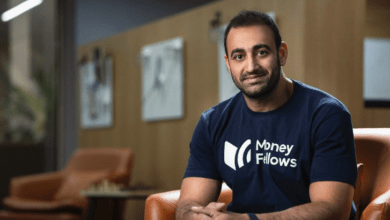How angel investing became a pastime and a way of socializing in silicon valley with investors betting small amounts in friends startups ellen huet bloomberg
Invstr 1m series azevedotechcrunch : Would You Invest $10,000 in a Friend’s Startup? Are You Friends If You Don’t?
Would You Invest $10,000 in a Friend’s Startup? Are You Friends If You Don’t?
In Silicon Valley, angel investing has become a key form of social currency.
Maia Bittner is an angel investor, and she has a lot of friends who’ve founded startups. Sometimes they ask her if she wants to put money into their companies. Bittner used to feel prickly about it—she didn’t want them to assume she’d write a check just because they’re friends.
At some point, however, she realized that being buddies with someone was a great reason to write them a check. “The fact that they are my friend means there’s something cool and interesting about this person,” says Bittner, who’s founded two companies of her own: Rocksbox, a jewelry rental service, and Pinch, a fintech startup. For someone she considers a good friend, she’ll sometimes invest blindly, without knowing what the company does, because she trusts their judgment. “Investing in my friends is super cool,” she says. “I get to support them. If they do well, I do well. If not, I’m helping them be entrepreneurs.”
In certain elevated strata of Silicon Valley, Bittner’s no-boundaries attitude has become common. Angel investing, historically the realm of the ultrarich, is now a pastime for the tech set, who often find themselves with extra cash on hand and entrepreneurial friends looking to raise money. Even beyond wealthy people investing their own money directly into startups, small-check investment is more prevalent than ever. According to PitchBook, 449 micro investment funds, which have $50 million or less in assets, were raised in 2021—100 more than in any previous year. These funds tend to invest in younger companies and write smaller checks than larger venture funds.
invstr 1m series azevedotechcrunch
Angel investing has long been a fixture of Silicon Valley funding. Historically, wealthy individuals used the structure to take long-shot bets on young startups. Most fail; some produce spectacular returns. But the process has been made radically simpler in recent years by improved software tools. AngelList, a tech investing platform that helps connect investors, founders, and job candidates, has increasingly focused on managing the often painful amount of paperwork required to raise funding.
As the process gets easier, more people are starting to dabble in it. “You look around, and everybody’s talking about investing,” says Parker Thompson, a partner at SAX Capital, which is affiliated with AngelList. “And suddenly, you can do that thing, too.”
In certain circles, angel investing isn’t just about making money anymore. It’s also a way to flex your social connections—and getting into a competitive funding round for a hot startup can feel like being on the list at the best nightclub. “In San Francisco, it’s definitely a thing to talk about your angel portfolio,” says Dina Burkitbayeva, an investor who also runs a bioscience startup. “It’s a social currency, where they’re saying, ‘I have access, I was early.’”
Invstr 1m 20m usann azevedotechcrunch
Bittner estimates she’s made 50 investments in the past six years, usually around $5,000 each. She enthusiastically overlaps her social circle with her investment portfolio whenever possible. When a friend complained about the lack of due diligence, Bittner says she responded, “I’ve known you for four years, spent time with you, seen who you are, and that’s more than most investors do. I’m betting on you.”
It cuts the other way, too. If an acquaintance approaches Bittner for an investment and she feels herself hesitate, it’s a sign to her that this person isn’t actually someone she considers a friend. “A lot of it is, ‘Do I fundamentally respect this person?’” she says. Conversely, there’s a particular sting when someone Bittner considers a friend doesn’t make space for her in their funding round. In April she tweeted: “I guess you learn who your real friends are when you can’t get allocation in their seed round 🙁 ”
Bittner describes the tweet as a joke, but also says there’s some truth to it. “That does tell me something about how much that person values me as a friend,” she says. “Maybe I thought we were closer than we really are.”
When investing becomes personal, it can get awkward. Some investors compared the delicate dance to being invited—or not invited—to a friend’s wedding. It’s understandable if the funding round is limited to a small group, but “if there’s a founder I consider a friend who has opened up a round where a lot of other people similar to me are investing in that round, and they don’t give me a look, that would be weird,” says Packy McCormick, who founded a newsletter about startups and now runs an early-stage fund. On the other hand, “sometimes you hope you don’t get asked, because you’re going to have to say yes, and you’d probably rather not,” he adds.
In the upper echelons of tech, investing in a friend’s company can help sustain a relationship. “When my friend asks if I want to invest, of course I’m going to kick in $10,000—it’s a way to stay connected, an excuse to get updates,” says one startup founder, who angel-invests on the side and asked not to be named to avoid offending friends. “To me it’s very similar to Instagram. You follow each other. The only difference is it costs $10,000 to follow someone, and to create a profile you have to start a company.”
This money-friendship overlap “reinforces the clubby nature of a lot of aspects of the Valley,” says Jeremy Conrad, a startup founder and occasional investor. He’s seen his peers trade information about startup deals in online communities for alumni of big tech companies. And he’s experienced the privilege himself. For his last startup, he raised about $10 million, $1 million or so of which came from personal friends—including Bittner—who were mostly investing on the side, not professionally. The company failed, which meant he lost his friends’ money. But when he talked to them afterward, “no one was mad at me,” he says. “Most people were like, ‘Don’t worry about it, you’ll get it next time, thanks for letting me be a part of it.’”
Even after the darkening economic conditions of recent months, angel investing has persisted. Between April and mid-June, when late-stage venture deals dropped 43%, early-stage funding fell only 26%, according to data from analytics firm CB Insights. In the second quarter, investors inked about 1,260 angel and seed deals—down by more than a quarter from a year earlier but still near historic highs, PitchBook data show.
While some investors are nervous, the wealthier ones—who view venture funds essentially as play money—are still fairly relaxed, says Eric Bahn, a partner at venture fund Hustle Fund. Some people are even doubling down. “They’re like, ‘Everything’s looking so cheap—I can get more for my money,’” he says. “Now, ironically, is the best time.”
Younger investors are especially sanguine. Meagan Loyst, who runs a Slack community for Gen Z investors, says the market downturn “honestly hasn’t even come up in conversation with friends” when discussing investing goals. “The beautiful thing about angel investing is you have to take a very long-term view—a 10-year time horizon,” she says. “If you have the money, it doesn’t really change.”





